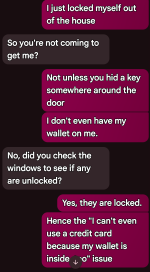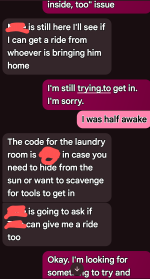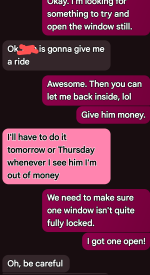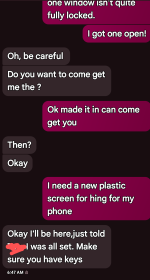Kumquatqueen
Literotica Guru
- Joined
- Aug 20, 2017
- Posts
- 4,540
There's nothing like starting a tale with "This is a true story" to convince me it's a work of total fiction.Someone once said - I'm sure - that the fact that "this really happened" is no excuse for putting it into a story.



